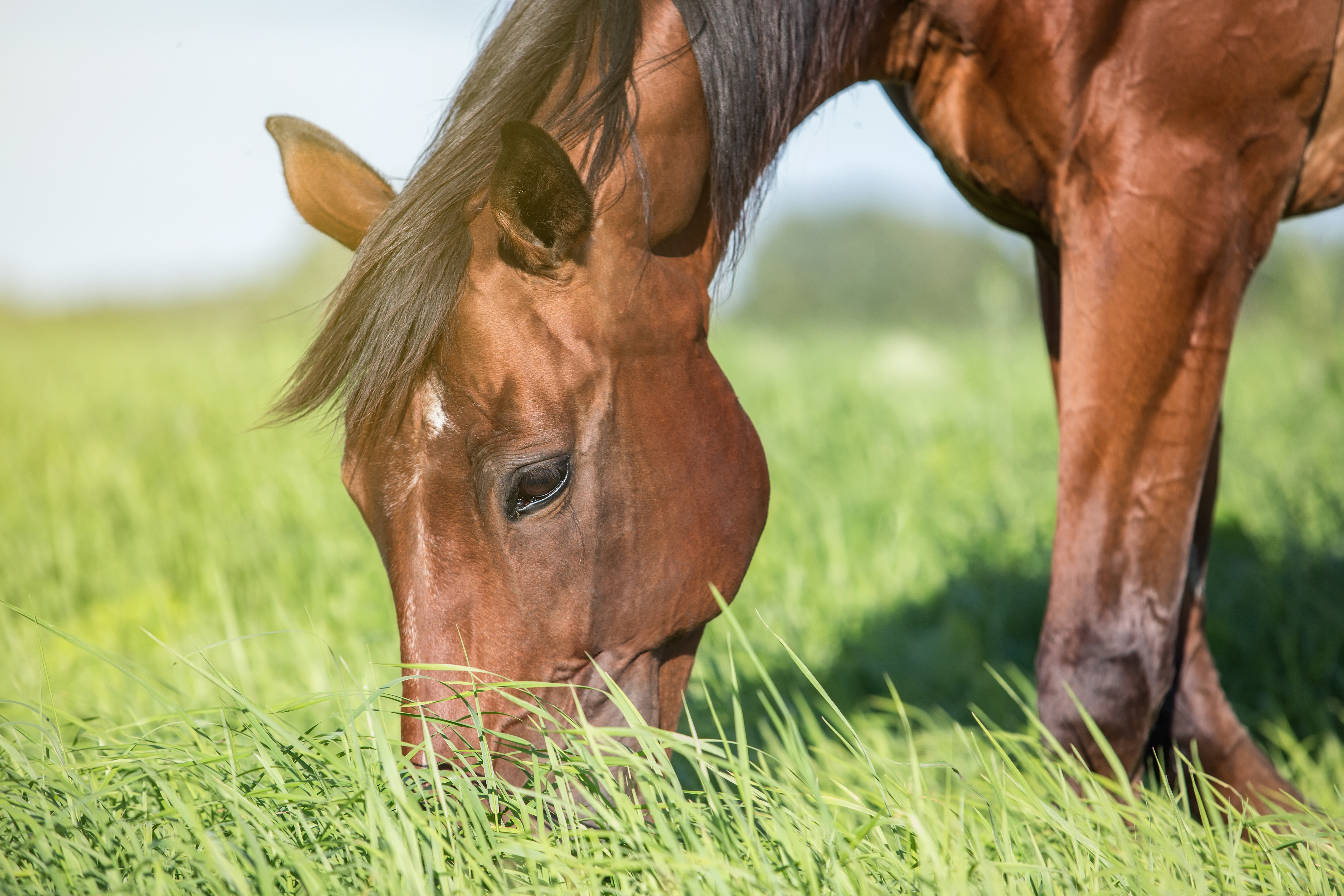Home > Horse Care > Preventative Care > Anatomy > Q&A: Why can’t horses vomit?
Q&A: Why can’t horses vomit?
- July 23, 2022
- ⎯ Equus
Q: Most horsepeople know that horses can’t throw up. But when my young daughter asked me why not, I didn’t have an answer. So, why can other species like cats, dogs and people vomit but not horses?
A: This question actually breaks down into two parts: Why is it physically impossible (or at least very difficult) for horses to vomit? And why should that be?

Vomiting (emesis) is a complex physiological event that requires a closely coordinated sequence of reflexive motions. When you are going to throw up, you draw a deep breath, your vocal cords close, your larynx rises, and the soft palate shifts to close off your airways. Then your diaphragm contracts downward, which loosens pressure on the lower esophagus and the sphincter where it enters the stomach. Next, the muscles of the abdominal wall contract spasmodically, which puts sudden pressure on the stomach. With the upward “doors” open, the contents have a clear exit pathway. All of these separate actions happen involuntarily, of course, controlled by distinct “vomiting centers” in the brain.
Horses, however, have a number of key physiological differences to ensure that any food they ingest takes only a one-way trip. For example, the muscles of the equine lower esophageal sphincter are much stronger than in other animals, making it nearly impossible to open that valve under backward pressure from the stomach. Also, the equine esophagus joins the stomach at a much lower angle than in many animals, so when the stomach is distended, as with gas, it presses against the valve in such a way that holds it even more tightly closed. And, located deep within the rib cage, the equine stomach cannot be readily squeezed by the abdominal muscles. Finally, horses have a weak vomiting reflex—in other words, the neural pathways that control that activity in other animals are poorly developed in horses, if they exist at all.
All that said, however, vomiting in horses has occasionally been reported. But it’s possible that some of these cases may actually have been choke—the “vomited material” may have been ejected from a blockage in the esophagus, not from the stomach. It’s also possible that under certain circumstances, a seriously ill horse could regurgitate, which is different than vomiting. Vomiting is a reflexive, muscular action that expels material under great pressure. Regurgitation is passive. If the esophageal muscles go flaccid, ingested food may ooze from the nose and mouth.
Nearly every vertebrate we know of vomits. Vomiting has been observed in fish, amphibians, reptiles and birds as well as most mammals. Horses are a notable exception—as are rats, mice, rabbits and most other rodents. Usually, vomiting is a defensive action, to remove ingested toxic substances from the body, for example, but some animals have more specialized reasons for bringing food back out of their stomachs. Ruminants, like cows, regurgitate food to chew the cud. Wolves and other wild canine species may swallow food in large chunks, then carry it back to their dens to be vomited up to feed their pups.
So why did horses evolve this way? We can only speculate. At some point, the need to retain food in the stomach must have been a more important survival mechanism than the need to eject toxins. Because horses are built to graze—to take in very small portions at a time as they feed throughout the day—and because they are fairly fussy about the plants they browse, it’s possible that they never needed to vomit because they would consume toxic doses only rarely.
Another clue may come from how horses run. When a horse gallops, his intestines shift forward and back like a piston, which hammers the stomach. In any other species, that would produce vomiting. Perhaps the horse evolved such a powerful lower esophageal sphincter to prevent him from vomiting as he eluded predators.
We may never really know.
Joe Bertone, DVM, MS, DACVIM
This article first appeared in EQUUS issue #452
Don’t miss out! With the free weekly EQUUS newsletter, you’ll get the latest horse health information delivered right to your in basket! If you’re not already receiving the EQUUS newsletter, click here to sign up. It’s *free*!





